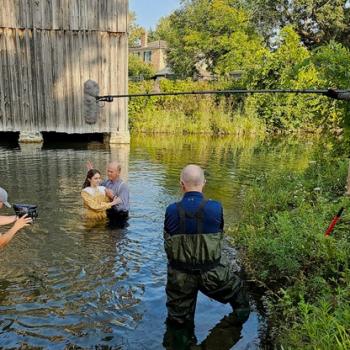
Over the next few days, I think that I might share a few passages that struck me during my recent reading of Hermann Hesse’s novella Siddhartha.
Here’s a short one that seems to me to explain, in a way, why it was necessary for us to come to earth. Obviously, neither Hesse nor his fictional Siddhartha would have seen it in quite that way, but I, coming to the story from a Latter-day Saint perspective, did.
In this little scene, Siddhartha is speaking with his childhood friend Govinda, whom he has previously seen only once since their youthful encounter with Gotama (the Buddha), to whom Govinda became a disciple while Siddhartha went his own way. They have both grown old by this time, and Siddhartha has essentially attained enlightenment and become a saint in his own right. Govinda, still a seeker, has asked Siddhartha to share with him some of the insights, the thoughts, that he has gathered along his idiosyncratic path:
“Sieh, mein Govinda, dies ist einer meiner Gedanken, die ich gefunden habe: Weisheit ist nicht mitteilbar. Weisheit, welche ein Weiser mitzuteilen versucht, klingt immer wie Narrheit.”
“Scherzest du?” fragte Govinda.
“Ich scherze nicht. Ich sage, was ich gefunden habe. Wissen kann man mitteilen, Weisheit aber nicht. Man kann sie finden, man kann sie leben, man kann von ihr getragen werden, man kann mit ihr Wunder tun, aber sagen und lehren kann man sie nicht. Dies war es, was ich schon als Jüngling manchmal ahnte, was mich von den Lehrern fortgetrieben hat.”
“Look, my dear Govinda, this is one of the thoughts that I’ve found: Wisdom cannot be communicated. The wisdom that a wise man tries to communicate to someone else always sounds like foolishness.”
“Are you joking?” asked Govinda.
“I’m not joking. I’m telling you what I’ve found. Knowledge can be communicated, but not wisdom. One can find it, one can live it, one can be sustained by it, one can do wonders with it, but it cannot be expressed in words or taught. This was what I sometimes guessed even as a young man, and what has driven me away from teachers.” (My translation)
Now, I don’t fully agree with Siddhartha’s rejection of teachers — a rejection that those who’ve read the story will know is effectively total. (He even meets the Buddha, speaks with him privately, and is deeply and forever impressed by him, but walks away from him nonetheless.) I believe in the necessity of prophets. But I do understand and agree with the fundamental importance of experiential knowledge, of the wisdom derived from living.
That is why we had to come to earth instead of merely reading books and hearing heavenly sermons about it.












